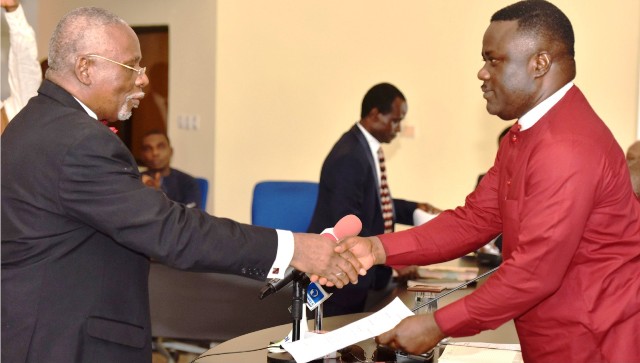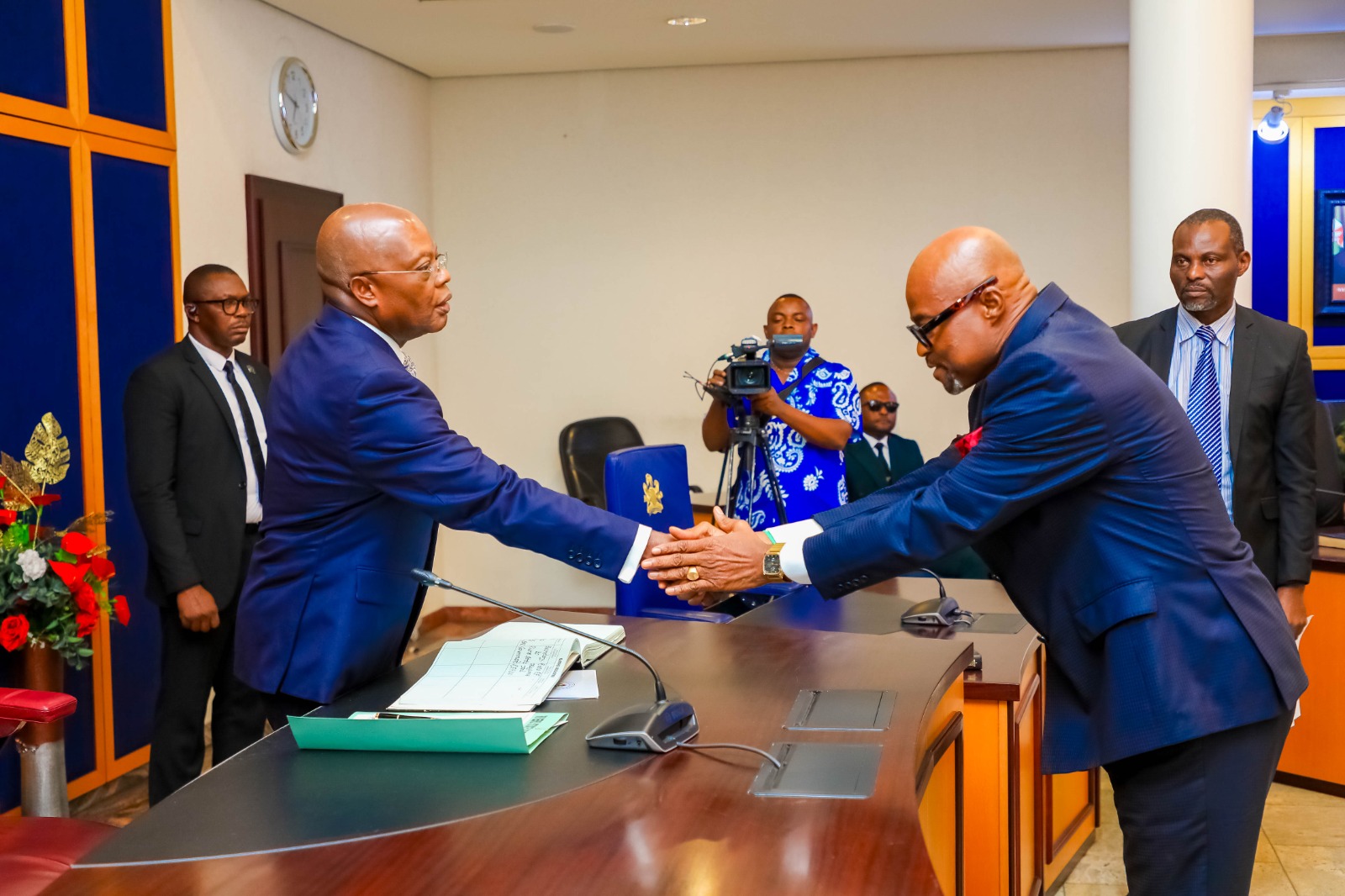Featured
Base Federal Character On Merit, Not Ethnicity – Sanusi

Worried by misapplication of the federal character principle, the Emir of Kano, Alhaji Muhammadu Sanusi said on Thursday that the principle should be based strictly on merit rather than on ethnicity.
Sanusi spoke at the 10th memorial lecture of Chief Kehinde Sofola (SAN) with the theme: “The Role of the Legal Profession in Nation Building: the Nigerian Context.”
The emir, who chaired the lecture, said the government should only ensure that representatives of the people in political, legal, or economic institutions in the country were drawn from suitably qualified individuals and not on ethnic considerations.
The Federal Character Commission Act was promulgated in 1995 and later fused into the 1999 Constitution in the wake of agitations for fair share of political positions across the country.
In the guiding principles and formula for the distribution of all cadres of posts across the country, the Act stipulates in its Part 1 that (1) “Each state of the federation and the Federal Capital Territory shall be equitably represented in all national institutions and in public enterprises and organisations. (2)
The best and the most competent persons shall be recruited from each state of the federation to fill positions reserved for the indigenes of the FCT.”
It was introduced to promote national unity and foster national loyalty instead of regional interests and eventually give every Nigerian a sense of belonging no matter anyone’s religion, language or ethnic group.
Sanusi said:”The issue of federal character should not be an excuse for nepotism; it should be based strictly on merit and not on family or ethnic sentiments.”
According to him, a true application of the federal character principle will help to preserve the rule of law in the country.
Describing democracy as rule of law based, the one-time Governor of Central Bank of Nigeria called on Nigerians to protect and defend the integrity and dignity of the nation’s legal institutions.
“As we live today, we must understand that it is our duty to respect the various institutions of our country.
“We cannot sit and watch as spectators as our institutions are being destroyed; to be a true Nigerian we must learn to look at our leadership and tell them where they are going wrong,” Sanusi said.
On human rights and liberty, the emir stressed the need for the society to pay attention to child rights.
As leaders, he said, they should perform their duties diligently for the benefit and common good of the people in accordance to the laws of the country.
For Sanusi strict adherence to the rule of law and treading the path of truth was the panacea to the scourge of corruption currently ravaging the country.
A human rights lawyer, Mr Femi Falana (SAN), a discussant at the lecture, called on lawyers to abide by the rule of law and shun every form of corrupt practices in court and in public life. According to Falana, the rule of law demands that the country is governed by law and the constitution.
He appealed to leaders to ensure that the rights and liberties of the citizenry were protected, adding “this can only be done by adherence to the law.”
Falana condemned corrupt practices by judicial and political officers and urged citizens to stand up and fight corruption. He described law as the sole guide and guard for any society, and that the court remained the temple of justice with judges as administrators in the temple.
Comparing the operation of law in Africa and Europe, Falana bemoaned the spate of violation of the law particularly in Nigeria and called for a redress.
He noted that some legal officers use of frivolous applications in court to stall proceedings and put a clog in the wheels of justice.
Falana, who urged lawyers must see themselves as officers of the court and act accordingly, said they should shun practices aimed at subverting the law. In her remarks, another discussant, Prof. Isabella Okagbue, also criticised frivolous applications aimed at perverting justice and condemned corruption in the legal profession.
A former Chief Judge of Lagos State, Justice Ayotunde Philips, who spoke on behalf of Kehinde Sofola Chamber’s Alumni, extolled the virtues of the late legal icon.
She described Sofola as a watchdog for all his employees and kept everyone on his toes as well as demanded dedicated to the profession.
She attributed her success in legal practice to the “ever present help” of the late legal icon, adding that lawyers must learn from the good conduct of their predecessors in order to be successful.
The lecture was attended by Edo Governor Godwin Obaseki, a political activist, Dr Junaid Muhammed, Justice Bimbo Obaseki-Adejumo and senior lawyers.
Featured
Bring Your Wealth Of Experience To Governance, Ibas Tasks New SSG

The Sole Administrator of Rivers State, Vice Admiral Ibok Ete Ekwe Ibas (rtd), has charged the new Secretary to the State Government (SSG), Prof Ibibia Lucky Worika to bring his wealth of experience to bear in governance of the State.
Vice Admiral Ibas (rtd) gave the charge shortly after swearing in the new SSG at the executive chambers of Government House on Wednesday night.
The Administrator who congratulated Prof Worika on his appointment said the choice was not merely an administrative decision but a statement of intent.
Vice Admiral Ibas (rtd) explained that the new SSG has an unparallel expertise in law, policy and international governance, which align perfectly with the mission to restore law, order, integrity and public trust in Rivers State.
He said: “To our new SSG, the task ahead is onerous, but your track record leaves no doubt in our minds that you will prove your mettle. Rivers State needs your intellect, grit and unweaving dedication. Together, we will write a new chapter of progress for this great state.
“Prof Worika’s role will be critical in driving this vision, ensuring that every policy, every decision and every action is in consonance with this administration’s mandate to restore law and order, stabilize the polity and to create the necessary conditions for the restoration of democratic institutions and representations.”
Vice Admiral Ibas (rtd) pointed to his maiden address to Rivers people wherein he emphasised that his administration will be committed to delivering an effective governance that is anchored on transparency, accountability and service.
He therefore, enjoined the new SSG to brace up to the demands of his office, and offer his best service as required while also working cooperatively with civil servants.
Vice Admiral Ibas (rtd) said: “You have no time to settle down. You must roll up your sleeves and get to work with the team.
“Our civil servants with whom we will work closely to run this administration are critical stakeholders and we must work with them to ensure that the state continues to function effectively during this administration.
“To the Permanent Secretaries and civil servants as a whole, once more I will ask your kind cooperation and support as we work to achieve our objectives at this time,” he added.
Featured
I Am One Of You, Sole Administrator Tells Rivers People …Warns Against Violence, Crude Oil Sabotage

The Sole Administrator of Rivers State, Retired Vice Admiral Ibok-Ete Ibas (rtd), has assured residents that he is not in the State as a partisan actor or political competitor but as a stabilising force to restore governance and order.
In a state broadcast yesterday, Ibas, who assumed duty at Government House, Port Harcourt, emphasised his commitment to protecting civil liberties and ensuring the safety of all citizens.
However, he issued a stern warning against crude oil sabotage and violence, urging residents to resist any temptation to return to past hostilities.
“For decades, I have dedicated my life to the service of our great nation—first as the 20th indigenous Chief of Naval Staff and later as Nigeria’s High Commissioner to Ghana. I answered this call out of the need for peace in Nigeria, and most importantly, in Rivers State,” Ibas stated.
Describing the prolonged political impasse as a major setback to governance and democracy, he acknowledged the hardships faced by families and businesses due to the prevailing uncertainty.
“As a son of the Niger Delta, I am one of you. I feel the weight of this crisis on families, businesses, and the future of our people,” he said.
Ibas commended President Bola Tinubu’s decisive action in declaring a state of emergency in Rivers State, stressing that it was a necessary move to restore stability and revive economic activities.
“My mandate is clear: restore law and order, ensure stability, and create an enabling environment for economic growth. But this mission requires collective support from all stakeholders, regardless of political affiliation or ethnicity,” he stated.
He discouraged attacks on oil infrastructure, reminding residents of the devastating environmental and economic consequences of such actions.
“The Niger Delta has moved beyond the destruction of oil facilities. We must resist the temptation to return to those ugly days,” he cautioned.
While pledging to uphold civil liberties and the rule of law, the Sole Administrator warned that lawlessness and violence would not be tolerated.
“We will not act arbitrarily, but we will not hesitate to deal decisively with anyone who threatens the peace and stability of Rivers State,” he declared.
Ibas revealed that he had concluded a State Security Council meeting where strategic measures were outlined to de-escalate tensions and prevent further conflict.
Expressing gratitude to President Tinubu for entrusting him with the responsibility, he also acknowledged the National Assembly for approving the emergency declaration.
“I will work closely with the national leadership under the guidance of the President. I am optimistic that Rivers State will emerge stronger and greater,” he concluded.
Featured
Abuja Truck Explosion Death Toll Rises To 10 …As Another Truck Crashes On Same Spot

The Federal Capital Territory Emergency Management Department has confirmed that 10 persons have died in the truck explosion that occurred near Karu bridge, along the Abuja-Keffi Expressway, on Wednesday.
The FEMD’s Head of Public Affairs, Nkechi Isa, confirmed the numbers in a statement, yesterday.
The Acting Director General of the Emergency Department, Abdulrahman Mohammed, had earlier confirmed that eight persons had died as of yesterday morning, with five confirmed dead on the scene, and four others burnt beyond recognition.
““Five people were taken dead from the scene yesterday (Wednesday). Out of the people that were injured, one died, making six. Then this morning (yesterday), when I asked my people to go round, they discovered that two had already died again, making eight. Four of them from yesterday were burnt beyond recognition.”, he explained.
However, in her statement, Isa said the Head, Forecasting Response and Mitigation of FEMD, Mr Mark Nyam, said eight bodies were deposited at the Karu Hospital Morgue, one body at the Asokoro Distinct Hospital Morgue while another body was deposited at the National Hospital.
He added that some victims had been referred to the Gwagwalada Teaching Hospital, Federal Medical Centre, Keffi, and Cedercrest Hospital Abuja for proper care.
Part of the statement reads, “The FCT Emergency Management Department FEMD can confirm that 10 persons lost their lives to the truck explosion that occurred at Karu bridge along Abuja / Keffi expressway.
“The Head Forecasting Response and Mitigation of FEMD, Mr Mark Nyam said eight bodies were deposited at the Karu Hospital Morgue, one body at the Asokoro Distinct Hospital Morgue while another body was deposited at the National Hospital.”
He informed that over 30 persons suffered various degrees of burns.
“Some of the victims have been referred to Gwagwalada Teaching Hospital, Federal Medical Centre,Keffi and Cedercrest Hospital Abuja for proper care,” he said.
Isa also stated that no fewer than 10 vehicles were burnt during the incident, adding that the FEMD boss after a visit to the incident scene, appealed to motorists to observe traffic rules and regulations.
He also cautioned against reckless driving, dangerous overtaking and poor maintenance of vehicles, while urging FCT residents to always use the 112 emergency toll free number in the event of an emergency.
Meanwhile, barely 24 hours after the incident, another fertiliser-laden truck has collapsed on the same spot.
The Tide learnt that the incidence occurred at about 3:54pm yesterday.
The Head of Public Affairs of the FCT Emergency Management Department, Nkechi Isa, confirmed the accident in a statement, stating that the truck collided with a Hijet and a dump truck, adding that no life was lost.
She cautioned road users to drive with caution as the Federal Road Safety Corps was making efforts to tow away the affected vehicles, to avoid traffic built up.
“Another accident has occurred under Karu bridge along the Abuja-Keffi Expressway. Thankfully, no life was lost to the incident. Our Search and Rescue say the accident occurred when a truck laden with fertilizer ran into a Hijet and a dump truck also known as tipper.
“Motorists are advised to drive with caution as the Federal Road Safety Corps is taking steps to tow away the affected vehicles in order to avoid traffic built up,” the statement read.
Meanwhile, several videos showed some persons trying to clear the fertiliser bags from the fallen truck to ease traffic.
-

 News2 days ago
News2 days agoUS Supreme Court stops Trump from deporting migrants
-

 Maritime1 day ago
Maritime1 day agoEnugu Plans Intra Rail System To Boost Trade
-

 Rivers2 days ago
Rivers2 days agoBSN Advises Churches In Bille To Unite For Revival
-

 Sports2 days ago
Sports2 days agoNSC, NCS Approve Fixed Calendar For Sports Festival
-

 News2 days ago
News2 days agoEaster: Fubara Urges Support For Tinubu
-

 Politics2 days ago
Politics2 days agoObi Urges Prayers For ‘Tender-Hearted, Caring’ Leaders
-

 News2 days ago
News2 days agoEx-SGF Tasks Leaders On Patriotism, Integrity
-

 Maritime1 day ago
Maritime1 day agoCustoms PTML Command Rakes In N90.2bn In Q1 2025

